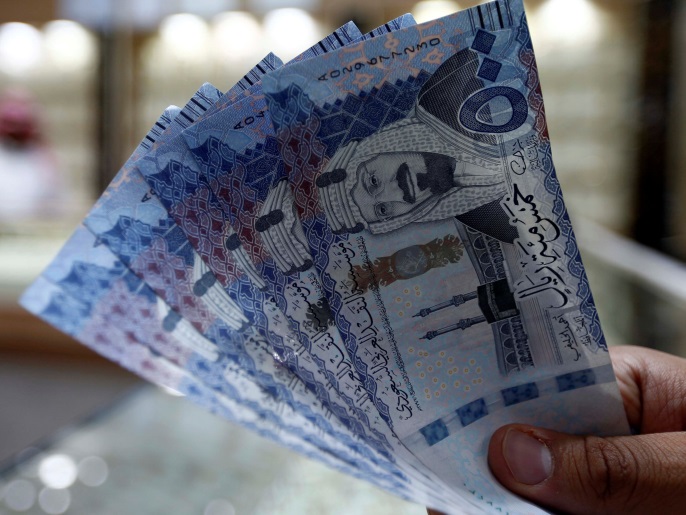Saudi foreign reserves fell sharply in April for the second month in a row as the kingdom transferred billions of dollars to support sovereign wealth fund investments abroad, at a time when its economy was severely affected by the emerging Corona virus.
The Kingdom - the world's largest oil exporter - is suffering from an unprecedented fall in crude prices, as well as measures to combat the Corona virus, which has affected the non-oil sectors of its economy.
Faced with a collapse in oil revenues and a significant increase in the deficit, the kingdom transferred forty billion dollars in foreign exchange reserves to the Public Investment Fund last March and April to support investment abroad in order to maximize returns.
According to data published by the Saudi Arabian Monetary Agency late Sunday, the net foreign assets of the SAMA decreased to 443.75 billion dollars last April, compared to 464.64 billion in March.
The total reserve - which includes foreign exchange and foreign deposits as well as investment in foreign securities - fell by approximately $ 25 billion in April, compared to the previous month.
Net foreign assets at the monetary agency fell about $ 27 billion in March, compared to the previous month, the fastest pace in at least twenty years.
"After excluding exceptional transactions, as part of the reserves were transferred to the Public Investment Fund to take advantage of investment opportunities in external markets under the current circumstances, we are not witnessing any unusual displacement with respect to foreign reserves," Finance Minister Mohamed Al-Jadaan told Reuters.
The decrease in reserves coincides with a trend of austerity that began last month when the country announced a three-fold increase in value-added tax and the suspension of exchange for the high cost of living for state employees in an attempt to support public finances.
Last month, the Public Investment Fund disclosed that it had acquired billions of dollars in shares in foreign companies such as Boeing, Facebook and Citigroup.
The fund is the preferred tool for Crown Prince Mohammed bin Salman to implement his plan to diversify the economy and introduce high-tech.
A fund spokesman said in an emailed statement to Reuters that he was always looking for opportunities for long-term investment at attractive prices.
He continued that the current environment in the market involves a number of opportunities that include sectors and companies that can drive economic growth and achieve value in the future after the current crisis has ended.
The fund - whose assets are valued at more than 300 billion dollars - said that one of the sources of funding is the cash that the government pumps.
In a related matter, the Saudi Central Bank announced today, Monday, pumping fifty billion riyals (13.3 billion dollars) to support liquidity in the banking sector, to enable it to continue financing the private sector.
According to the Corporation’s statement, liquidity will enhance the role of banks in adjusting or restructuring their funds without any additional fees, and supporting plans to maintain levels of employment in the private sector, as well as exempting from a number of fees for electronic banking services.

